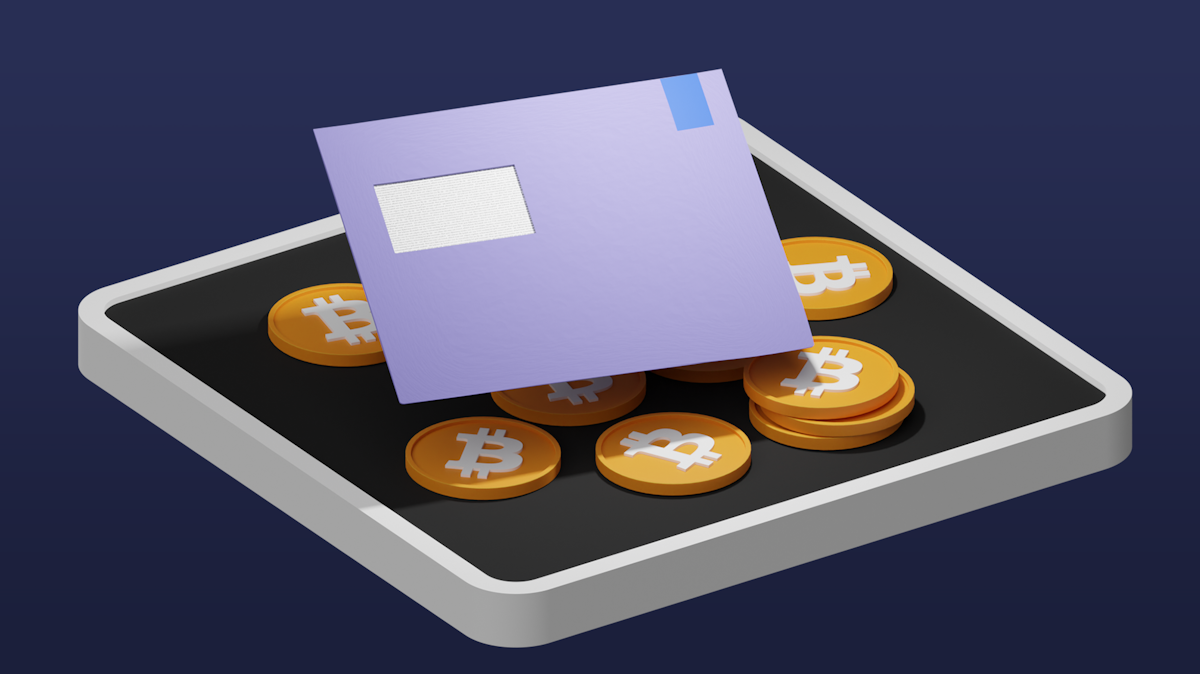Cryptocurrency and tax
Cryptocurrency and taxes belong together like a mosquito and a bite. If you have more than an every year changing sum of money sitting in crypto you have to pay taxes on it. Tax is not the most fun part about cryptocurrency, but you have to be mindful of it if you don't want any nasty surprises. If you don't file a tax return when you should have, penalties can amount to as much as 300% of what you should have paid. That's why it's good to know how the IRS handles cryptocurrency. The IRS website on the subject is quite brief. We will provide a brief summary so you don't have to look at the IRS website unless strictly necessary.
Brief Summary
✔️ Crypto and taxes are classified as assets in Box 3 for most Dutch people.
✔️ If the value on January 1 exceeds 50,000 euros, it is mandatory to report it in the tax return.
Declaration of cryptocurrency with the tax authorities
I am an individual and own cryptocurrency. These belong in box 3 (assets). The value of your crypto currency as of Jan. 1 serves as the reference date (you may determine the lowest price of your crypto on that day).
I am a private individual and I mine cryptocurrencies or trade cryptocurrencies. If you mine and thereby earn more than your expenses, you must report this to the taxes under "Income from other work or business." This is not likely to be the case in the Netherlands.
You do not have to declare the proceeds from trading cryptocurrency; this is considered speculation. However, if you earn additional income on top of your investment activities through employment, you do have to declare it as "Income from other employment or business."
I am an individual and I receive my salary in cryptocurrency. The employer must then convert your wages in kind to euros at the time you receive them.
I am an income tax entrepreneur and I am paid in cryptocurrency. If you are paid for your services or supplies in cryptocurrency, you must convert it into euros and count them among your sales.
When exchanging cryptocurrencies, you can make a profit or a loss. You put this in your profit and loss account. You can read further details at the link above.
I am a sales tax entrepreneur and I am paid in cryptocurrency. In your VAT return, you must convert payments in cryptocurrency for your services or supplies to euros and report them.
My BV is paid in cryptocurrency. Your revenue is calculated by converting cryptocurrency received into euros.
My BV mines and trades cryptocurrencies. Your limited liability company runs a business with its entire assets. This means that both the mining and the buying and possible selling take place within the company. The results of mining and trading are therefore reflected in the income statement.
If you are a business owner and dealing with cryptocurrency, I would not only read the above webpage of the tax authorities carefully, but also have a tax expert assist you in this subject. He can then tell you exactly how to report these things.
Crypto and taxation for the bulk of people
For most people in the Netherlands, their cryptocurrency will fall under box 3 as assets. When filling out your tax return, you will be asked whether your cryptocurrency is worth more than about 50,000 euros (tax-free assets) on the reference date (January 1), or twice as much if you have a partner. If the answer is no, then you can move on to the next question and you won't have to declare anything.
If you have more than that you will have to read up on it, because it can get complicated quickly. When filling out your tax return, you will have to enter exactly the right numbers. If you enter too much you will pay too much, if you enter too little you could get into trouble.
It goes too far to go all the way into it in this blog. If necessary, you can have a tax advisor fill it out once, then you can do it yourself the next time if you pay attention.
Crypto tax in other countries
Germany
This country is very progressive when it comes to cryptocurrency. For example, the Ministry of Finance released a comprehensive letter explaining how Germany is dealing with cryptocurrency.
It is clear that they are in know this country well where the clapper hangs, because virtually everything you have to deal with in the crypto world, such as airdrops, mining, staking, borrowing and so on are covered in this write-up. "For individuals, selling Bitcoin and Ethereum after you have owned them for a year is tax-free," said State Secretary Katja Hessel. Germany clearly wants to be ahead of the curve in this area in the acceptance of cryptocurrency. It also HODLs of other cryptocurrencies for longer than one year is tax-free.
If you sell within a year, 600 euros of the total profit is still tax-free. After that, you have to start paying taxes. So clearly they want to start encouraging cryptocurrency holding. However, if you don't stay within these limits, the tax on profits when trading cryptocurrency can add up quickly. This is the individual income tax (individuelle Einkommensteuersatz).
Up to 9,744 euros and double for married couples you pay 0%.
Up to 57,918 euros and double for married couples, you pay 14-42% on your earnings.
Up to 274,612 euros and double for married couples, you pay 42%.
If you earn more than 274,612 euros and double for married couples with crypto you pay 45%.
Here you pay another 5.5% Solidaritätszuschlag on top of your income tax.
So if you make substantial profits, it can pay off to hold this currency for more than a year. Timing your purchases can then be essential, because you don't want to sell only when the bear market has arrived.
Italy
This country wants to tax crypto profits over 2,000 euros by 26% by 2023. That's very hefty. They did build in the clause that if you already declare your gains on Jan. 1 you will only pay 14%.
Portugal
Many cryptonomads came here because Portugal was accommodating with cryptocurrency and the climate is nice. In 2023, that could end. The country plans to impose a 28% tax on profits from cryptocurrency sales, except if you hold the coins for more than a year after purchasing them.
Apparently, Portugal is also looking forward to HODL'ing. Mining of crypto is also likely to be taxed, and brokers may surrender 4% of their commissions. By the way, legislation in Portugal may take years to be announced. However, the solution for brokers and traders is already presenting itself: if you move to lovely Madeira, an island of Portugal, the favorable conditions remain and Bitcoin even becomes legal tender.
Belgium
In this country, you can file an investment plan with the tax authorities to know in advance what you will have to pay in taxes if your plan succeeds. If you're smart about it, you can even pay 0% tax. To do so, you must meet a number of conditions, such as HODL'ing, staggered purchases and using your own money. If you start trading on a shorter term or with borrowed money, you are at 33% taxes on your profits under "Miscellaneous income." For business or professional trading, the rate is 25-50%, depending on the amount of your profit. If you don't convert the crypto coins you have into fiat money then the profits remain untaxed.
EU
The European Commission has in its portfolio a proposal to introduce a European tax on cryptocurrencies. This could go into effect in 2026. What amounts would be involved is not known, but they want to have a unified policy for cryptocurrency trading in all member states so traders and platforms know where they stand.
Conclusion
More and more countries are moving to regulate cryptocurrency. In general, the rules are still quite flexible. European regulation has been in place since 2023 with the MICA law. This certainly won't be the last law in this area, so get your wallet wet. Two things are certain in life: taxes and death. But I'm not quite sure about the second.

